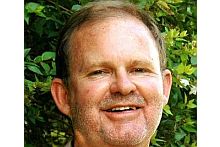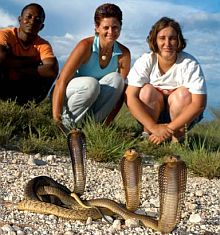SAEON pays tribute to SA’s citizen scientists
|
- Johan Pauw, Managing Director, SAEON
This latest issue of SAEON eNews highlights the significant role that ‘citizen scientists’ or volunteers are beginning to play in the South African Environmental Observation Network (SAEON).
There are several considerations when dealing with volunteers, which include opportunities as well as constraints.
Perhaps the most obvious opportunity is that considerable ground can be covered relatively cheaply since the field labour is free of charge. Even more appealing - although SAEON has not gone there yet – is that the outcomes and/or outputs could be used to generate revenue as an added advantage. Caution has it that such a step could bind SAEON in a contractual arrangement that awards more legal power to the volunteer in the unfortunate case of litigation against the organisation for something that went wrong.
Volunteers need training, support and scientific and logistical coordination. This in itself requires SAEON staff to do extra work, although SAEON’s Ndlovu Node has delegated much of their citizen scientist coordination and support to one of the volunteers.
Other complications are issues of safety, security and health, which require that volunteers not only have to be screened for fitness for purpose, but also compelled to sign indemnity forms. Planning must include protective and back-up measures. Only thereafter do cultural and dietary issues come into play.
What’s in it for the volunteer?
Naturally not all projects are suitable for citizen science, but creative thinking could overcome some obstacles. As usual the clue lies in the answer to the question: “What’s in it for the volunteer?”
The answer would often be experience or adventure or a charitable contribution to conservation, or a mixture of these. A good example of this is the Bateleurs, who ably assisted the SAEON Ndlovu Node in their Mopane mapping project. For the Bateleurs, an organisation volunteering airborne support and thus flying transects for free, the opportunity was in clocking up flying time (required for retaining a pilot’s license) and at the same time contributing to a worthy cause.
Citizen science is not new in South Africa. Outstanding examples can be found at the Avian Demography Unit at the University of Cape Town which uses volunteers on a regular basis for the collection of data towards compilations of species atlases, e.g. for birds, butterflies and frogs.
The South African National Biodiversity Institute (SANBI) and Working for Water are running a joint programme through which volunteers can submit observations of new invasions of alien species as early warnings that will allow for a rapid eradication response. The South African Institute for Aquatic Biodiversity (SAIAB) runs the Fish Watch programme, through which reef fish species can be identified and recorded by recreational divers. The list goes on.
SAEON would like to thank all South Africa’s citizen scientists - you are making a significant contribution to the achievement of scientific objectives that cynics might easily write off as wild goose chases.
Related content:
Call for citizen scientists to help monitor SA marine resources
Mopane mapping project enters its second year
Butterfly conservation gets wings with new atlas project












